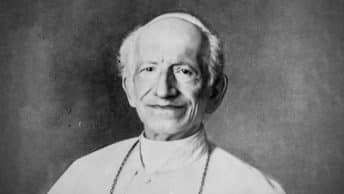Charitable giving is not always virtuous. If I give my own money or goods to someone in need out of love of neighbor, in the great majority of cases I am acting virtuously. However, if I give what I hold in trust for someone without that person’s permission, I am violating that trust. And if I give what I have simply taken from someone else without their knowledge, I am commiting the sin of theft.
Charity is even more complex if the persons giving it are elected officials and the money is taken from the taxes collected from their constituents. Some would argue that once taxes are collected, the money no longer belongs to the constituents. In a sense that is true, but it does not mean that elected officials own what was collected. They instead hold it in trust to manage or use for the good of the people. This role is clearest in the case of a democratic republic such as the U.S., in which government is “of the people, by the people, and for the people.”
A further fact about the government’s giving away of other people’s money or goods is that it does not qualify as virtuous. For charity to be virtuous, a person must freely give something he owns to someone else. Giving someone else’s money or goods does not qualify.
Nowhere are these facts more relevant–or less understood–than in the aid given to foreign countries and immigrants to this country. Over the decades, many elected officials have come to believe that they have the unqualified right, and even the obligation, to dispense charity to people in other countries and to individuals who migrate to this country. Moreover, Catholic bishops tend to agree with them!
Regardless of who holds this belief, it reflects a serious misunderstanding of the concept of charity as expressed in the Bible and embraced by western civilization. (All major religions embrace the concept of charity in similar but not identical ways.) The word “charity” derives from the Latin “caritas,” which means “love.” Among the many biblical references to charity are the following:
“For there will never cease to be poor in the land. Therefore I command you, ‘You shall open wide your hand to your brother, to the needy and to the poor, in your land.’” (Deuteronomy) “Whoever is generous to the poor lends to the Lord, and he will repay him for his deed.” (Proverbs) “He has distributed freely; he has given to the poor; his righteousness endures forever; his horn is exalted in honor.” (Psalms) “Each one must give as he has decided in his heart, not reluctantly or under compulsion, for God loves a cheerful giver.” (2 Corinthians) “But when you give to the needy, do not let your left hand know what your right hand is doing, so that your giving may be in secret. And your Father who sees in secret will reward you.” (Matthew) “And he answered them, “Whoever has two tunics is to share with him who has none, and whoever has food is to do likewise.” (Luke) Do not neglect to do good and to share what you have, for such sacrifices are pleasing to God. (1 John)
Perhaps the best known passage on charity in the New Testament is found in Luke 10: 30-37. “A man was going down from Jerusalem to Jericho, and he encountered robbers, and they stripped him and beat him, and went away leaving him half dead. And by coincidence a priest was going down on that road, and when he saw him, he passed by on the other side. Likewise a Levite also, when he came to the place and saw him, passed by on the other side. But a Samaritan who was on a journey came upon him; and when he saw him, he felt compassion, and came to him and bandaged up his wounds, pouring oil and wine on them; and he put him on his own animal, and brought him to an inn and took care of him. On the next day he took out two denarii and gave them to the innkeeper and said, ‘Take care of him; and whatever more you spend, when I return, I will repay you.’ Which of these three do you think proved to be a neighbor to the man who fell into the robbers’ hands? And he said, ‘The one who showed compassion to him.’ Then Jesus said to him, ‘Go and do the same.’”
What is noteworthy about these and other biblical passages about charity is that they are addressed to people as individuals, not to governments.
Why are those passages addressed to individuals? Didn’t governments exist in Jesus’ day? Of course they did. So why didn’t Jesus have His Samaritan simply report the injured traveler’s condition to the Pharisees, the Sadducees, the Roman authorities, or the tax collectors? Why, instead, did He have the Samaritan meet the man’s need himself?
It would seem the Good Samaritan parable is meant to convey that love of neighbor is most meaningful when expressed personally. I am not suggesting that only the personal expression of charity can be meaningful. Over the centuries new ways of helping one’s neighbor have been devised, including hospitals, “soup kitchens,” and assisted living facilities. And they have been operated not just by individuals, but also by churches, community groups, and private agencies. Given that development, it was predictable that government, with its much greater resources, would eventually become involved in charity, both at home and abroad.
Nevertheless, though government involvement can be helpful, it has created difficulties and dangers. To begin with, government is often inefficient, profligate, and even grossly incompetent in its management of other people’s money. Even when it creates oversight committees to minimize such problems, it all too often loses or squanders massive sums of money and goods. In the case of domestic aid, programs intended to alleviate the conditions of the poor sometimes deepen them instead, most dramatically by causing fathers to leave families. And when it comes to aid to end poverty in other countries, the money meant for the poor frequently finds its way into the coffers of the rich and well connected. In such cases, the poor not only remain in need; they are likely to hate their would-be benefactors as much as they do their government oppressors.
American politicians from both parties have been either oblivious or unconcerned about the counter-productivity of their charitable programs. This failing seems to be part of politicians’ makeup. (Ronald Reagan had a great line about it: “The most terrifying words a person can hear are, ‘I’m from the government and I’m here to help.’”)
The same failing has prevented the politicians from noticing that the “progressive” movement, after long effort, has succeeded in radically altering the concept of charity. This was accomplished simply by semantic manipulation—instead of speaking of the needs of the poor, as the Bible and Christian teaching had done for centuries, they spoke of the rights of the poor.
That modification of wording may seem innocuous, but its results have been dramatic. One is that it changed charity from an expression of obedience to God and love of neighbor, motivated by compassion, to the mere paying of a debt. Another is that it made charitable giving less an act of virtue and more an acknowledgment of guilt for not having acted sooner. Yet another implication is that since the receivers of charity are considered entitled to it, there is no need for them to feel grateful for donors’ generosity. In fact, the receivers of charity in many cases resent the donors for having “given less than they should have.”
The change in focus from needs to rights is so at odds with the Bible, and subversive of its meaning, that one would expect the Catholic hierarchy to have long warned against it it in their writings and directed pastors to do the same in their homilies. Unfortunately, they have for decades not only tacitly supported the new meaning of charity but in many cases embraced and championed it. As a result, most of today’s prelates are more apt to dismiss critics of the “progressive” view of charity as “racist” than to acknowledge the biblical (or philosophical) basis of their concern.
The U.S. Catholic hierarchy’s acceptance of the view that charity is a right rather than a need has led them to look favorably at, and often endorse, a host of “progressive” causes, notably redistribution of wealth and virtually open borders. In turn, that inclination led them to oppose many of President Trump’s initiatives and help Joe Biden win the 2020 presidential election. And that same inclination, I believe, has caused many of the hierarchy to be uncharacteristically silent about the disastrous results of Biden’s presidency that multiply weekly if not daily.
What I have written thus far raises three baffling questions. Why did why the hierarchy embrace the non-biblical view that the poor have a right to charity? Did they not realize that it paved the way to the Socialism denounced by a number of Popes? And why are they continuing in that embrace despite abundant evidence that it is causing the poor greater misery and threatening the very existence of the nation that for centuries has been the their greatest beacon of hope? Part 2 of this essay will address these questions.
Copyright © 2021 by Vincent Ryan Ruggiero. All rights reserved.








